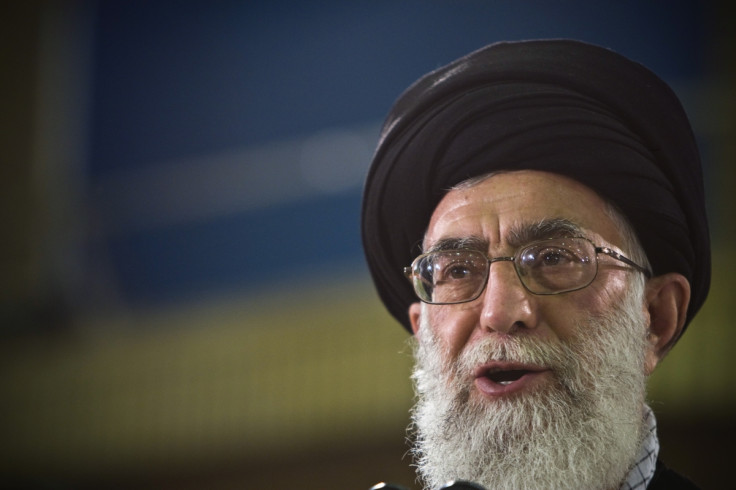Iran's Ayatollah Ali Khamenei: 'Jewish Holocaust is Uncertain'

Iran's supreme leader has reiterated his doubts over the historic veracity of the Holocaust in his annual speech marking Persian New Year.
Addressing a large crowd in Iran's northeastern city of Mashhad, Ayatollah Ali Khamenei claimed that the systematic murder of six million Jews by the Nazis during the Third Reich was not certain.
"The Holocaust is an event whose reality is uncertain and, if it happened, it's uncertain how it happened," said Khamenei, who has called the Holocaust a "myth" many times in the past.
The supreme leader used the reference to the Holocaust to criticise Western attacks on Iran's theocratic regime.
"In Europe no one dares to speak of the Holocaust," Khamenei said. "They passionately defend their red lines. How [do] they expect us to overlook our red lines that are based on our revolutionary and religious beliefs?"
We should not be pinning [our] hopes on when the enemy will lift the sanctions. The hell with them; we should look into what we can do ourselves
Iran does not recognise Israel and former president Mahmoud Ahmadinejad infamously claimed the Shoah was fabrication.
Since the election of Hassan Rohani, a moderate, as president last year, however, some high profile officials have watered down their rhetoric against Tel Aviv.
In September, foreign minister Javad Zarif said that Iran had never denied the Holocaust.
"We never were against Jews. We oppose Zionists who are a minority," Zarif said. "We have condemned killing of Jews by Nazis as we condemn (the) killing and crackdown on Palestinians by Zionists."
The opening came as Tehran was about to start talks with western powers over its nuclear program and economic sanctions that have hit Iran's economy.
In his speech, which marks the beginning of the year 1393 on the Persian calendar, the supreme leader said that "Iran must strengthen itself" instead of waiting for the West to lift sanctions.
"We should not be pinning [our] hopes on when the enemy will lift the sanctions," Khamenei, who has final say on all state matters in Iran, said.
"The hell with them; we should look into what we can do ourselves."
In November an interim nuclear deal was reached, and some sanctions eased.
Iran and the so-called P5+1 group - Britain, China, France, Russia and the United States plus Germany - are now working on a comprehensive agreement envisaging long-term limits on the nuclear programs in exchange for an end to sanctions.
© Copyright IBTimes 2025. All rights reserved.






















